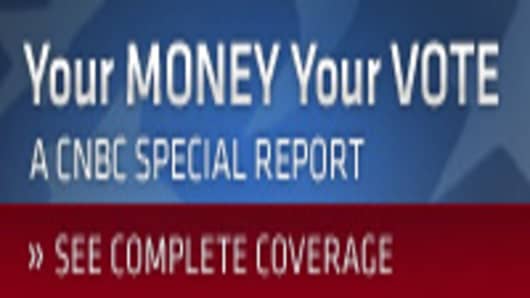Social media has come of age in its relationship with the political process: Social media tools are front and center for every step, from evaluating who to support to after the polls close. During these mid-term campaigns candidates from both sides of the aisle have embraced Facebook and Twitter, following President Obama's huge success engaging with voters through social media during his campaign.
The fact that the vast majority of candidates have a presence on Facebook makes it a compelling indicator of voter sentiment. Facebook and Twitter certainly don't replace traditional polling, but they give an interesting window to where Americans are willing to scream their support.
The millions of Americans who declare they "Like" a candidate on their profile page are doing the virtual equivalent of planting a sign in their front lawn. Check out these stats compiled by Allfacebook, an independent website — it's numbers echo more formal polls: Its numbers do echo more formal polls.
Twitter is also a key source for so-called "sentiment analysis" — and we can expect networks like CNN to refer to Tweets during election coverage to give the pulse of the electorate. Dan Zarrella, a self-proclaimed "social media scientist," examined the correlation of candidates Twitter accounts and recent poll performance.
Zarrella finds that in 71 percent of races, the candidates with the most Twitter followers was ahead in the polls. Even Zarrella just points out that this is simply a first step in understanding the correlation between election performance and social media usage — but it's a relationship we'll understand a lot more about after the results of this election are in.
Facebook and Google are taking a huge role in helping people vote. Facebook asks all visitors to its website on election day whether they've voted and directs them to a tool to find their voting location. Google has an "Election Center" app and website that offers polling locations, times, and links to other pertinent info.
And FourSquare offers an "I Voted" data visualization map to encourage voter turnout. (It's pretty cool: elections.foursquare.com)
But these social networks aren't news organizations, which is why they're partnering with traditional broadcasters: ABC will live stream coverage on Facebook and NBC (a unit of CNBC's corporate parent, NBC Universal) will be embedding video into its updates on Twitter. So you can get all the results without ever clicking away from your social network.
Questions? Comments? MediaMoney@cnbc.com



